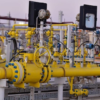
IMF calls for increase in electricity and gas prices to revive Pakistan’s IMF program

The International Monetary Fund (IMF) has recently called for an increase in electricity and gas prices in Pakistan to revive the country’s IMF program. This decision has been met with mixed reactions, as increasing energy prices is likely to have a significant impact on the everyday lives of citizens, especially for those living in poverty.
The IMF program is designed to help countries in financial distress by providing them with loans and technical assistance. However, in order to qualify for these loans, the country must implement certain economic and financial reforms. In the case of Pakistan, one of the key reforms that the IMF is calling for is the increase in energy prices. The IMF argues that increasing energy prices will help to reduce the country’s budget deficit and improve the sustainability of its public finances.
While there may be some economic benefits to increasing energy prices, it is important to consider the social and political implications as well. The reality is that energy prices have a direct impact on the cost of living for citizens. An increase in electricity and gas prices is likely to lead to higher prices for goods and services, which will make it more difficult for people to make ends meet. This is particularly concerning for low-income households and those living in poverty, who will be disproportionately affected by the price increase.
The government of Pakistan must take into account the potential social and political consequences of increasing energy prices and consider alternative options to reduce the budget deficit and improve public finances. It is important to find a balance between addressing economic issues and protecting the welfare of citizens.
In conclusion, the IMF’s call for an increase in electricity and gas prices in Pakistan is a complex issue that must be carefully considered. While increasing energy prices may have some economic benefits, it is important to also consider the social and political implications and ensure that the welfare of citizens is protected. The government of Pakistan must explore alternative options and find a balance between addressing economic issues and protecting the welfare of its citizens.







